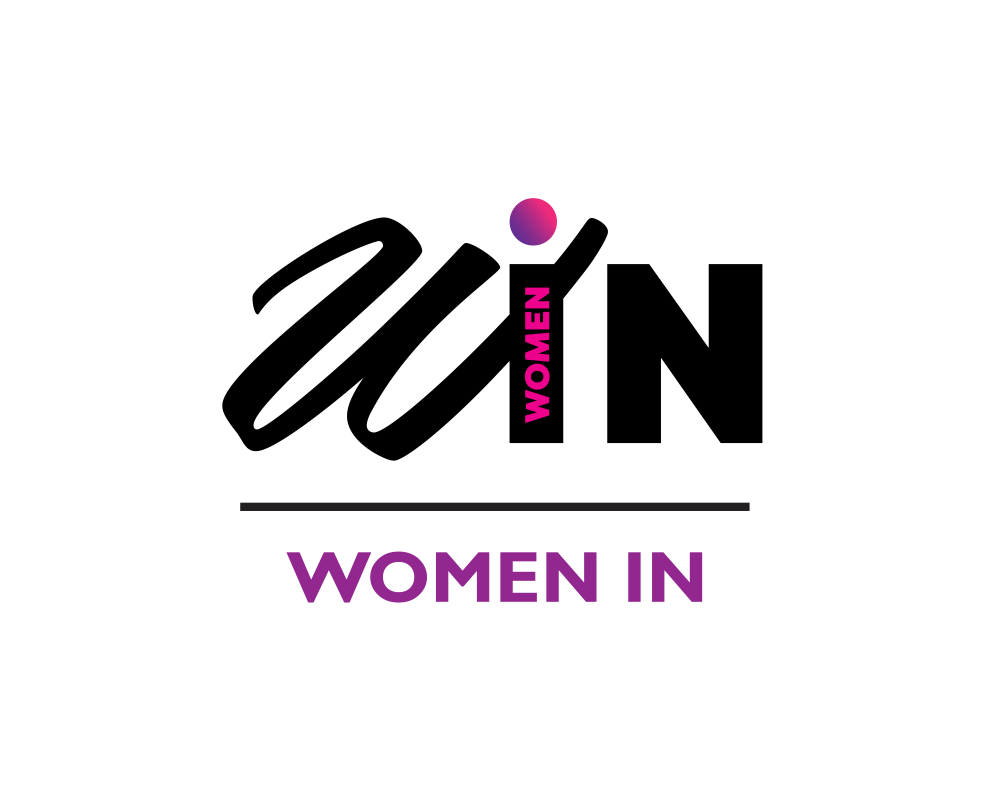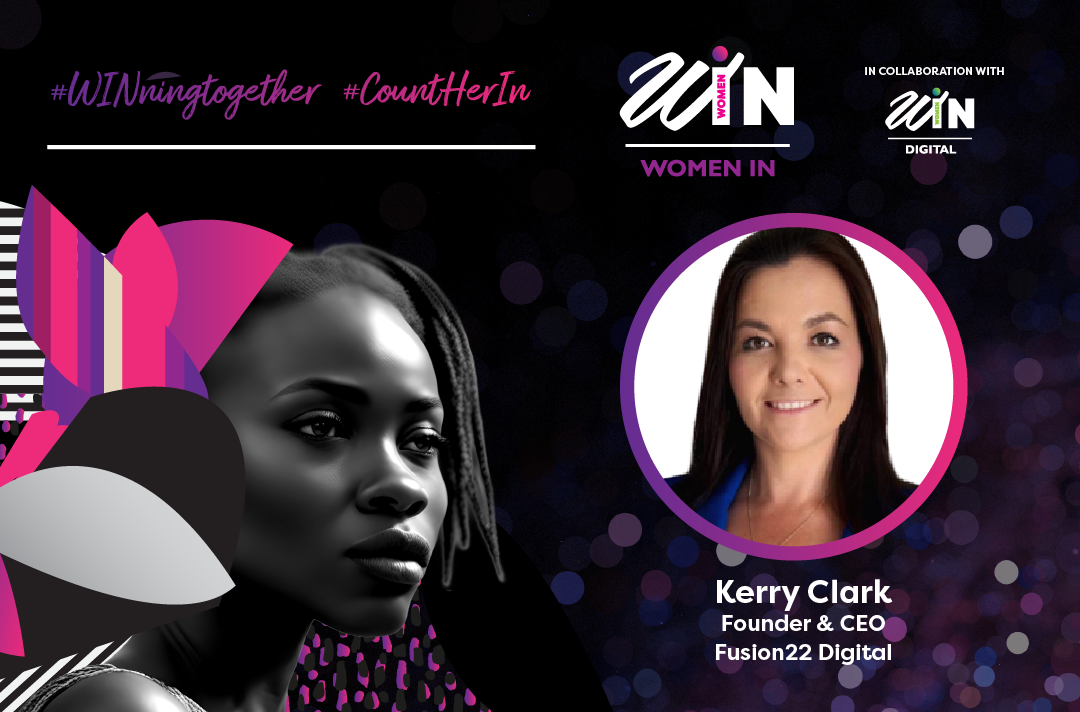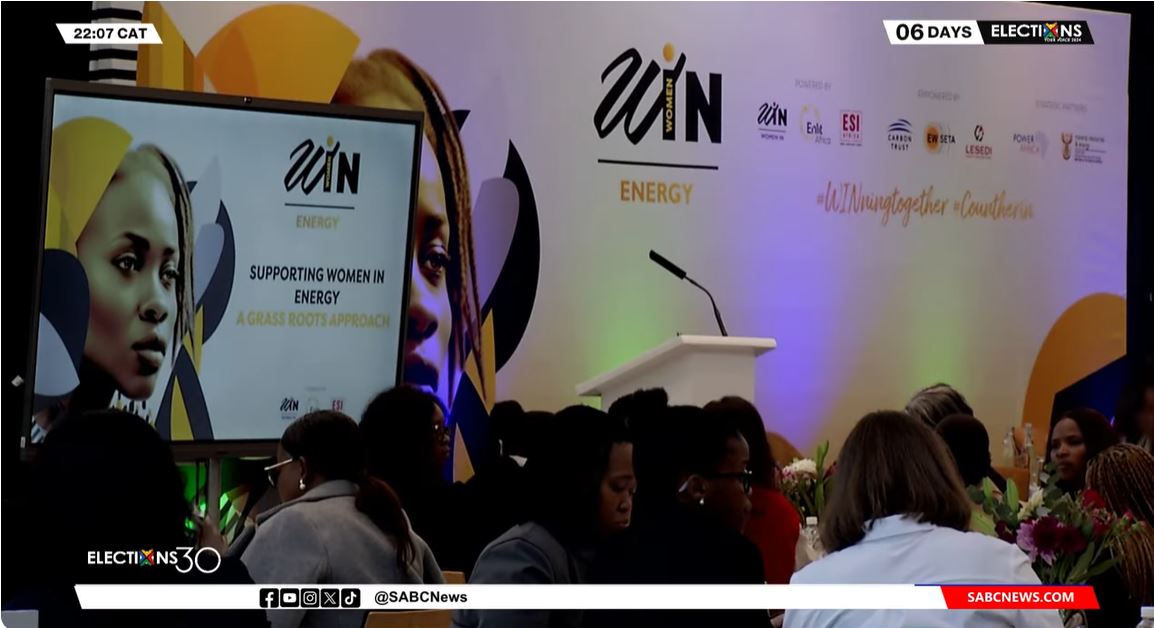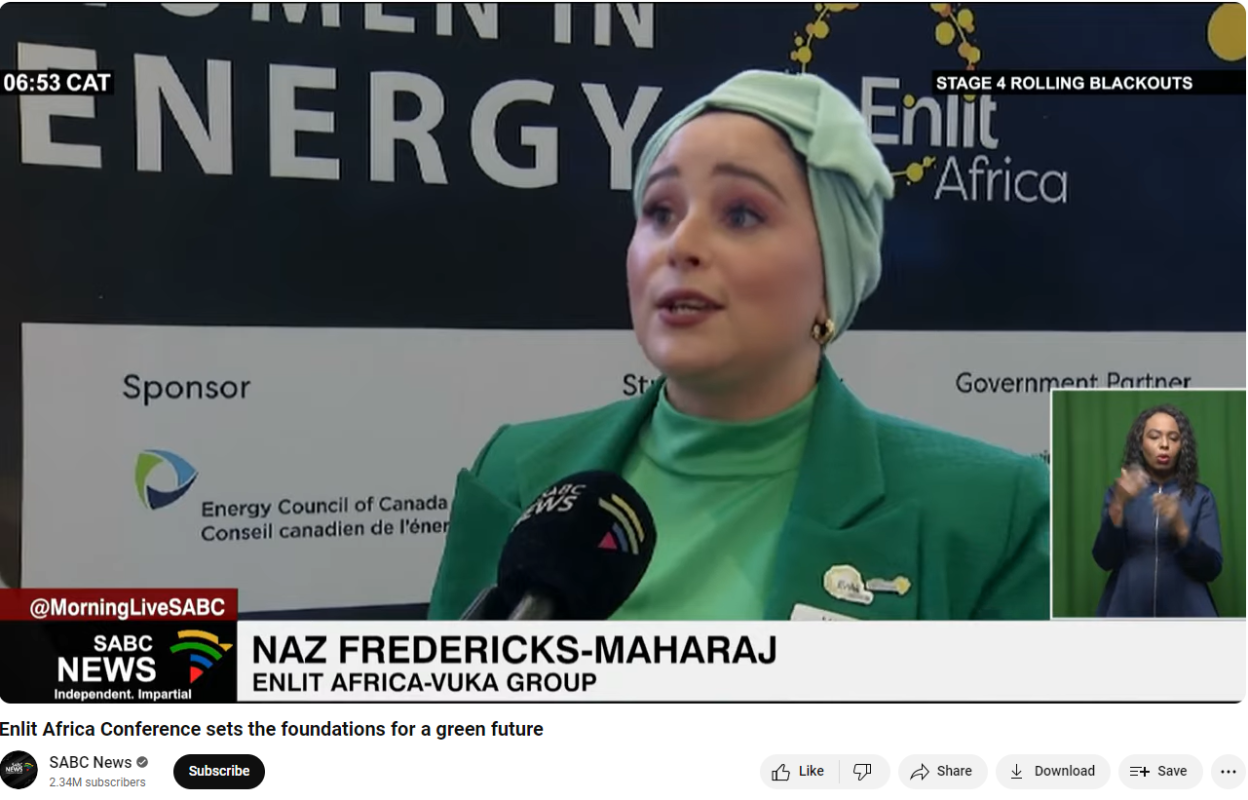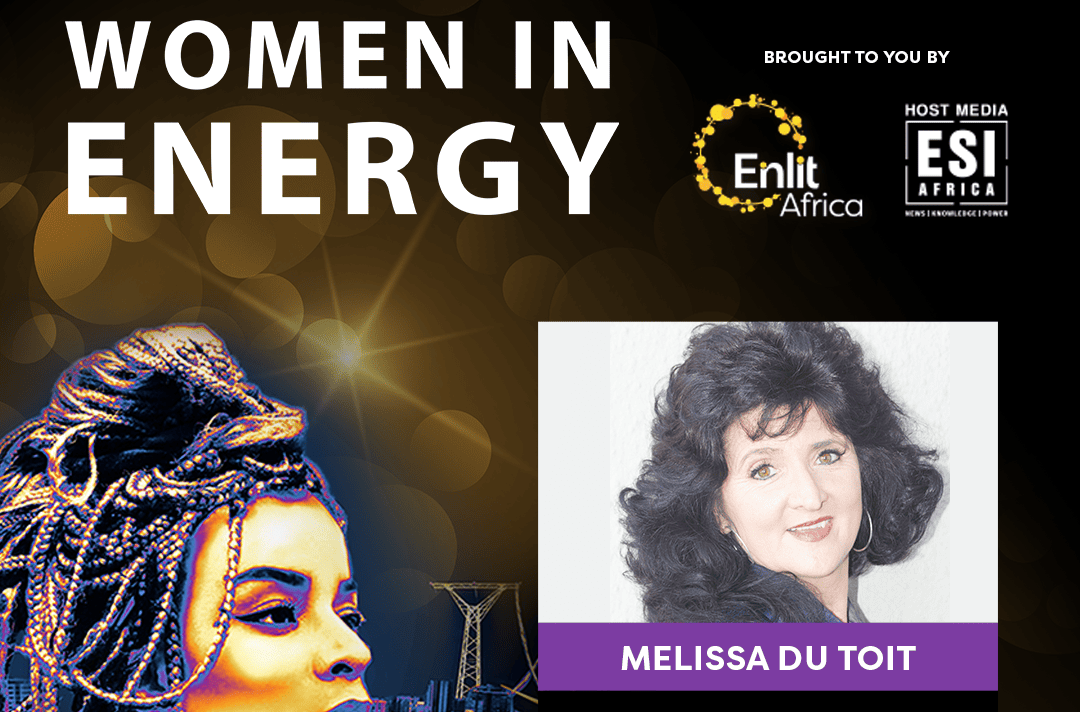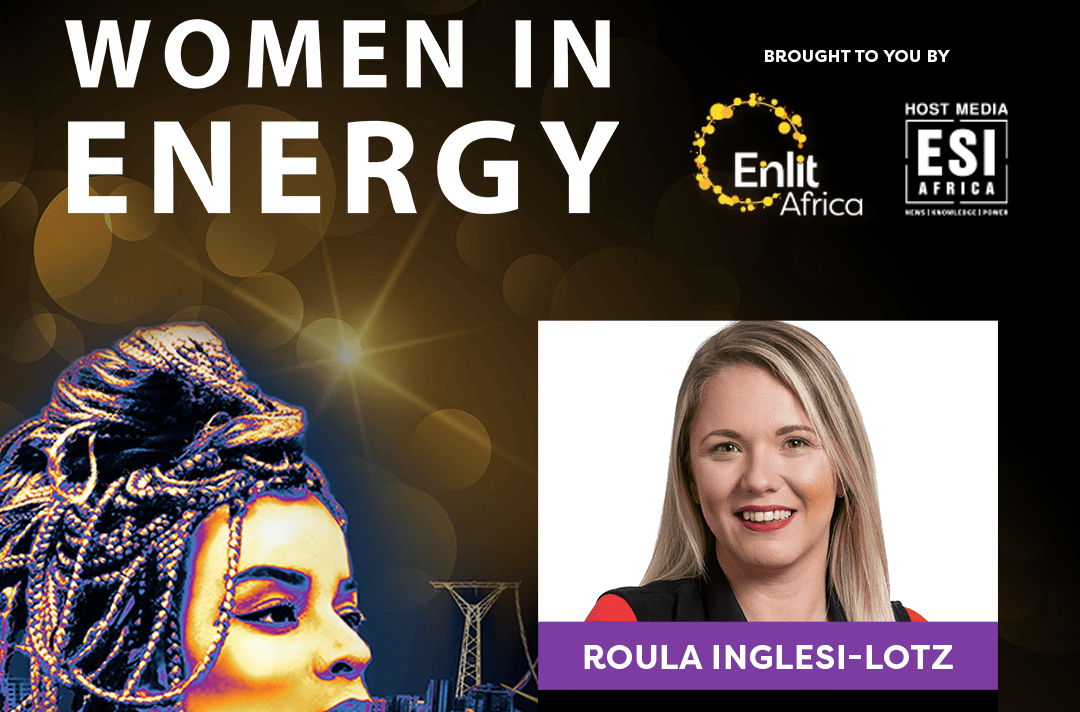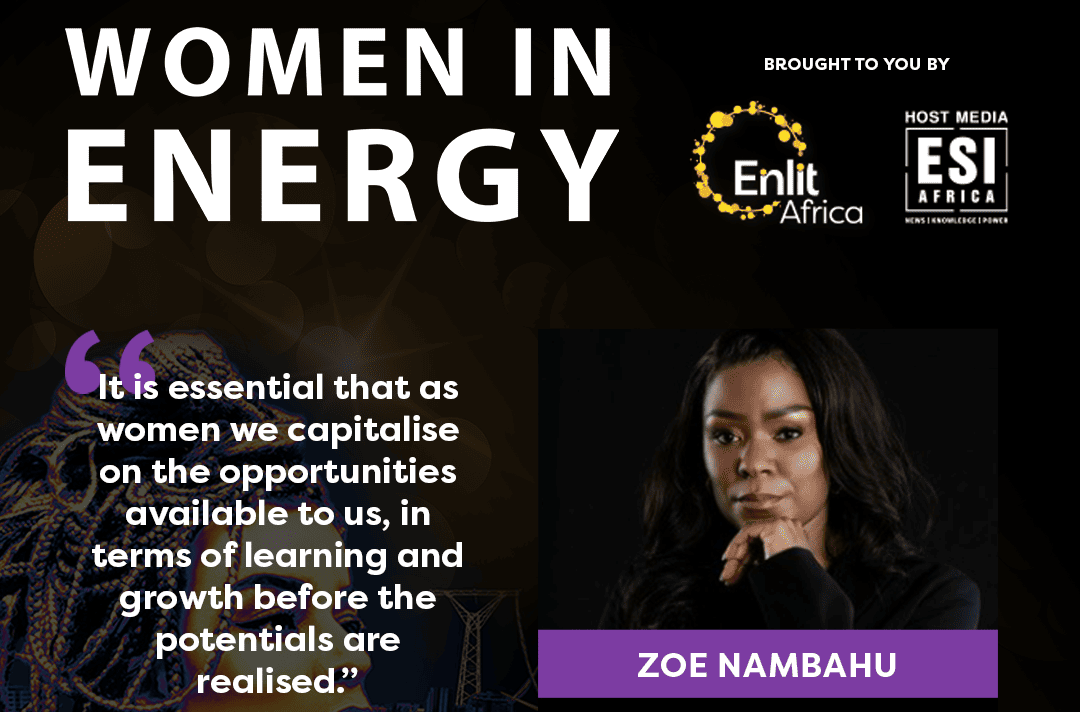Interview done with Siveshni Pillay of SANRAL, about the importance of women gathering together and women in the mobility sector at Women In Mobility at Smarter Mobility Africa.
After the successful Women In Energy session at Enlit Africa 2023, SABC news interviews some of the attendees and the founder of Women In, Nazlee Fredericks.
Bio
Mellisa du Toit is the driving force behind MELJIN BUSINESS & COMMERCIAL, a renowned company that has been making significant strides in the commercial property and energy sectors. Her unwavering dedication to environmental protection fuels her mission to reduce the carbon footprint of her clients by providing innovative renewable energy solutions. By collaborating with leading EPC solar providers, Mellisa delivers cutting-edge energy solutions tailored to meet her clients’ specific needs. This approach not only helps businesses reduce production costs but also enables them to achieve their long-desired sustainability goals.
With her extensive experience in managing renewable energy projects, Mellisa ensures a seamless and efficient tender process for her clients, setting her apart as a trustworthy and results-oriented leader. Moreover, she excels as a motivational mentor and strategic visionary, empowering teams through coaching and targeted training programs. As the founder of MELJIN Direct Motivation, she is committed to guiding individuals towards unlocking their full potential and finding purpose in their work lives.
In her role as CEO of MELJIN Energy, Mellisa has proven herself as a formidable force in managing commercial and industrial energy projects. Her consultative and customized approach fosters enduring client partnerships, earning her widespread admiration and respect within the industry.
Beyond her entrepreneurial prowess and expertise in the energy sector, Mellisa du Toit stands tall as a powerful role model for women, igniting their determination to challenge the status quo in traditionally male-dominated fields. Her groundbreaking achievements in the energy industry and unwavering dedication to sustainability have made her a beacon of inspiration for aspiring women professionals across the board.
Mellisa’s unwavering commitment to professionalism, integrity, and exceptional service is evident in the positive impact she continues to make in both the energy and commercial sectors. Her visionary efforts in striving for a more sustainable future are nothing short of remarkable.
Questions
In your opinion, why do you think the energy sector in its current state has less female representation and do you see it increasing?
The energy sector has historically been male-dominated, and there are several factors that have contributed to the underrepresentation of women in this industry:
Stereotypes and Social Norms: Traditional gender stereotypes and societal expectations have played a significant role in discouraging women from pursuing careers in fields that are perceived as more “technical” or “physical,” which includes many roles within the energy sector.
Lack of Role Models: The absence of visible female role models in leadership positions within the industry can make it more challenging for women to envision themselves in similar roles and progress in their careers.
Educational and Workplace Barriers: Women may face barriers in accessing education and training in fields related to energy. Additionally, workplaces may not always be conducive to the advancement of women, leading to a lack of representation in higher-level positions.
Unconscious Bias: Unconscious bias, both in hiring practices and workplace environments, can lead to discriminatory practices that hinder the career advancement of women.
Work-Life Balance: Some roles within the energy sector, particularly in certain sub-sectors like oil and gas, can involve demanding schedules and frequent travel, which may be perceived as challenging for maintaining work-life balance and dissuade some women from pursuing such careers.
Despite these challenges, there has been a growing recognition of the importance of diversity and inclusion in the energy sector and other industries. Many companies are actively working to improve gender diversity and representation within their organizations. Furthermore, women have been making significant strides in the energy sector, taking up roles in various areas like engineering, renewable energy, policy-making, and corporate leadership. As awareness increases and organizations continue to prioritize diversity and inclusion, it is hopeful that the representation of women in the energy sector will continue to increase over time.
What do you see as the role of women in ensuring energy security and resilience in the power sector?
Women play a crucial role in ensuring energy security and resilience in the power sector in various ways:
Leadership and Decision-Making: Women can contribute significantly to energy security and resilience by taking up leadership positions in the power sector. Their diverse perspectives and experiences can lead to better decision-making and more comprehensive strategies for addressing energy challenges.
Promoting Diversity and Inclusion: Women leaders can advocate for diversity and inclusion within the industry. A diverse workforce brings in a broader range of ideas, skills, and solutions, making the power sector more adaptable and resilient to changing circumstances.
Advancing Renewable Energy and Sustainability: Women have been instrumental in driving the adoption of renewable energy and promoting sustainable practices in the power sector. As champions of environmental causes, they can advocate for cleaner and more sustainable energy solutions, contributing to long-term energy security and reducing the sector’s environmental impact.
Innovation and Technology: Women in the power sector are driving innovation and technology advancements. They contribute to the development of smart grids, energy storage solutions, and other cutting-edge technologies that enhance energy security and grid resilience.
Community Engagement and Empowerment: Women often play a significant role in community engagement efforts related to energy projects. Their involvement helps ensure that the concerns and needs of local communities are taken into account, fostering better relationships and acceptance of energy infrastructure development.
Education and Skill Development: Women can contribute to energy security by actively participating in and promoting education and skill development programs related to energy. By encouraging more women to pursue STEM education and energy-related careers, they contribute to building a skilled workforce for the sector’s future challenges.
Energy Policy and Advocacy: Women can influence energy policies and regulations that impact energy security and resilience. They can advocate for policies that promote clean energy, grid modernization, and equitable access to energy resources.
Climate Change Mitigation and Adaptation: Women have been at the forefront of climate change mitigation and adaptation efforts. As climate change poses risks to energy infrastructure and resources, their contributions in this area are essential for enhancing the sector’s resilience.
In summary, women have a multifaceted role in ensuring energy security and resilience in the power sector. Their contributions, in leadership, sustainability, innovation, community engagement, education, and policy advocacy, are vital for building a robust and sustainable energy future. Encouraging greater gender diversity and inclusion in the power sector will undoubtedly lead to more comprehensive and effective solutions for energy challenges.
What message do you have for women entering a male-dominated sector?
Entering a male-dominated sector can be challenging, but it’s also an opportunity to make a significant impact and pave the way for others. Here are some messages of encouragement and advice:
- Believe in Yourself: You belong in this sector just as much as anyone else. Have confidence in your abilities, skills, and knowledge. Trust that you have what it takes to succeed and make a positive impact.
- Embrace Your Uniqueness: Your perspective and experiences as a woman can bring valuable insights and diversity to the table. Embrace your uniqueness and use it as a strength in your professional journey.
- Challenge Stereotypes: Don’t be afraid to challenge stereotypes and biases. Your success and accomplishments will help break down barriers and prove that gender should never be a limiting factor in any field.
- Seek Mentors and Allies: Find mentors and allies who support and advocate for you. They can provide guidance, advice, and help you navigate the challenges you may encounter.
- Support Other Women: Lift and support other women around you. Building a strong network of support can create a more inclusive and empowering environment for everyone.
- Be Resilient: There may be obstacles and setbacks along the way, but don’t let them deter you. Stay resilient and learn from each experience, using them to grow and become even stronger.
- Continuously Learn: Stay curious and committed to continuous learning. The more you know, the more confident you’ll feel in your abilities.
- Celebrate Your Achievements: Celebrate your achievements, no matter how big or small. Recognize your hard work and progress, and take pride in what you’ve accomplished.
- Advocate for Change: Use your voice to advocate for positive changes within the sector. Be a champion for diversity, inclusion, and equal opportunities.
- Lead by Example: As you progress in your career, remember that you are not only creating opportunities for yourself but also setting an example for future generations of women. Lead with integrity and inspire others to follow their dreams.
- Remember that you are not alone; there are many women who have succeeded in male-dominated sectors, and you can too. Stay true to yourself, be persistent, and use your skills and passion to make a difference. Your presence in the sector contributes to breaking down barriers and creating a more inclusive and equitable future for all.
Bio
Prof Roula Inglesi-Lotz is a Professor in the Department of Economics at the University of Pretoria. She obtained her MCom in Economics (cum laude) and earned her doctorate in economics in 2011 from the same institution. Prof Inglesi-Lotz serves as the head of the Energy Economics Unit at the University of Pretoria and leads the university’s research team in the UNDP Just Energy Transition (JET) platform.
Her research revolves around energy and environmental issues, aiming to address challenges related to conventional energy consumption and generation methods. Prof. Inglesi-Lotz has an impressive publication record, with over 90 academic papers published in reputable international journals and contributions to books and academic and business reports.
Prof. Inglesi-Lotz holds editorial positions in respected international journals, including Energy Policy (JEPO), Energy Economics (ENECO), and Environmental Science and Pollution Research (ESPR). She actively participates in professional organizations, currently serving as the Vice President for Membership and Affiliate Relations of the International Association for Energy Economics. She was also a founding member and President of the South African Association for Energy Economics for four years.
In addition, Prof. Inglesi-Lotz is an alumnus of the South African Young Academy of Sciences (SAYAS) and the Global Young Academy (GYA). Her contributions include serving as a co-chair for SAYAS in 2019/20 and representing low- and middle-income countries as a co-chair for GYA in 2021/22.
Recognizing her accomplishments, Prof. Inglesi-Lotz received the Women in Science prize in the Social Sciences and Humanities categories from the South African Department of Science and Technology (DST) in 2017. She is also an NRF C1-rated scientist, effective from January 2023.
Prof. Roula Inglesi-Lotz’s expertise and dedication in the field of energy economics have made her a prominent academic and leader. Her research contributions and involvement in various organizations showcase her commitment to advancing knowledge and sustainable energy solutions.
Questions
How did you end up in the energy sector and what advice would you give to other women wanting to follow a similar career trajectory?
My journey into the energy field commenced with a focus on economics and academia. I became curious after the early power outages in the nation during my Master’s program in 2008. This sparked my interest in learning about the complexities of the energy sector’s problems and led me to learn more about the areas of energy pricing, its connections to the economy, the creation of policies, and environmental considerations.
I would advise prospective women seeking a similar career track to embrace the interdisciplinary character of the energy sector. By thoroughly examining energy’s various characteristics, we can provide essential insights to inform successful policy decisions, promote sustainable growth, and address significant energy-related concerns. Additionally, I urge educators to stress the value of energy literacy in economics courses.
In your opinion, why do you think the energy sector in its current state has less female representation and do you see it increasing?
Historical, sociological, and professional challenges can be attributed to the underrepresentation of women in the energy sector today. By limiting their participation and influence within the sector, this monodisciplinary perspective unintentionally helped to marginalise women. A requirement for admittance into the energy business is frequently high levels of education and experience, which may have been challenging for women to meet, given historical discrepancies in access to educational opportunities. Moreover, a sizable section of the female workforce may have unintentionally been excluded due to some physically demanding requirements related to unskilled occupations in the sector. Furthermore, this cycle has been exacerbated by the lack of obvious female role models.
Positive change is being sparked by famous female executives shattering stereotypes and promoting an egalitarian workplace atmosphere. This positive cycle is gradually eliminating gender disparities and advancing the industry toward a more diversified future, indicating hope for long-term advancement.
What message do you have for other women entering a male-dominated sector?
It is important to avoid becoming discouraged by underrepresentation. Instead, women should see this as a chance to refute and alter assumptions. Instead of following established conventions, the way forward is to embrace their true self and put their distinctive viewpoints on display. I urge them to be steadfast in sharing their opinions, ideas, and observations. Assist other women, creating a network of mentoring and support. By doing this, young women can increase their influence and amplify the voices and aspirations of those around them.
I want to encourage others to be brave, genuine and strive to be change agents. Advance knowing that by embracing their individuality and unique vision, they are entering a male-dominated industry and starting a transformative journey that will move the industry towards genuine equality, creativity, and greatness.
What opportunities do you see in Africa’s energy market?
The abundance of renewable energy resources, the opportunity for off-grid solutions to reach disadvantaged areas, and the ability to close energy access gaps to promote economic growth, healthcare, and education make Africa’s energy market a promising terrain for transformative changes. The region’s potential is further amplified by novel financing strategies, improvements in energy efficiency, and cross-border integration, while cutting-edge technologies like battery storage and natural gas development present opportunities to overcome current infrastructural constraints and improve sustainability.
Solar potential: Africa’s strategic location along the equator provides abundant solar resources, which are a foundation for developing renewable energy sources. This potential gives a special chance for local manufacturing and job growth in addition to energy generation alone. African nations can use their solar resources to create clean electricity and establish local solar manufacturing sectors, promoting economic growth and sustainability. This is possible as solar technology becomes more widely available and more affordable.
Hydropower potential and Hydrogen economy: The continent’s large river networks and water resources hold enormous hydropower potential. The Grand Ethiopian Renaissance Dam and the Inga Dam Complex are two hydroelectric projects that could be strategically developed to power nearby communities and the developing hydrogen economy. Africa can position itself as a key player in the global shift toward sustainable hydrogen utilization by utilising excess hydropower to produce green hydrogen through electrolysis and providing a clean energy option for various sectors while leveraging its natural resource advantages.
What recent legal or regulatory changes do you think have the potential to make a positive impact on energy access in Africa?
The Renewable Energy Master Plans of Nigeria and South Africa are two examples of ambitious renewable energy objectives and regulations that pave the way for increased clean energy production and enhanced access to electricity. The Energy Act of 2019 in Kenya is a practical example of a practical action that goes along with these regulatory reforms. Initiatives to liberalise the energy sector also encourage private investment and foster healthy competition, as seen in Ethiopia and Uganda. The continent’s congruent international commitments demonstrated by its active involvement in the Sustainable Development Goals and the Paris Agreement, represent a collective desire to advance fair access to energy and sustainable development in Africa.
Watch our interview with Zoe Nambahu
“It is essential that as women we capitalize on the opportunities available to us, in terms of learning and growth before the potentials are realized.”
These are the words of the phenomenal Zoe Nambahu, Chief Legal Advisor, Compliance and Company Secretariat at Namibia Power Corporation – heading legal and governance advisory, compliance, business process mapping, preferential procurement compliance and the Aviation division.
She is also a Non-Executive Director and Chairperson of the Erongo RED Board of Directors, a Non-Executive Director on the Board of Hollard Life and Hollard Insurance Namibia and an External Trustee on Alexander Forbes Umbrella Funds.
Watch here: https://youtu.be/BNsTUAOCCoI?si=kCiaXL0pgZzMXcXU
- 1
- 2
